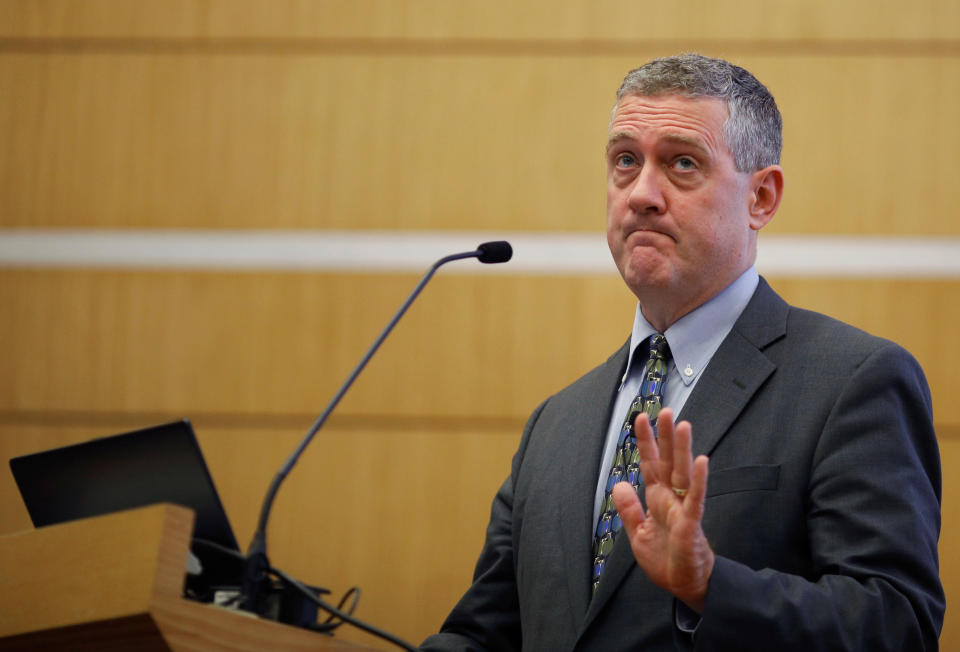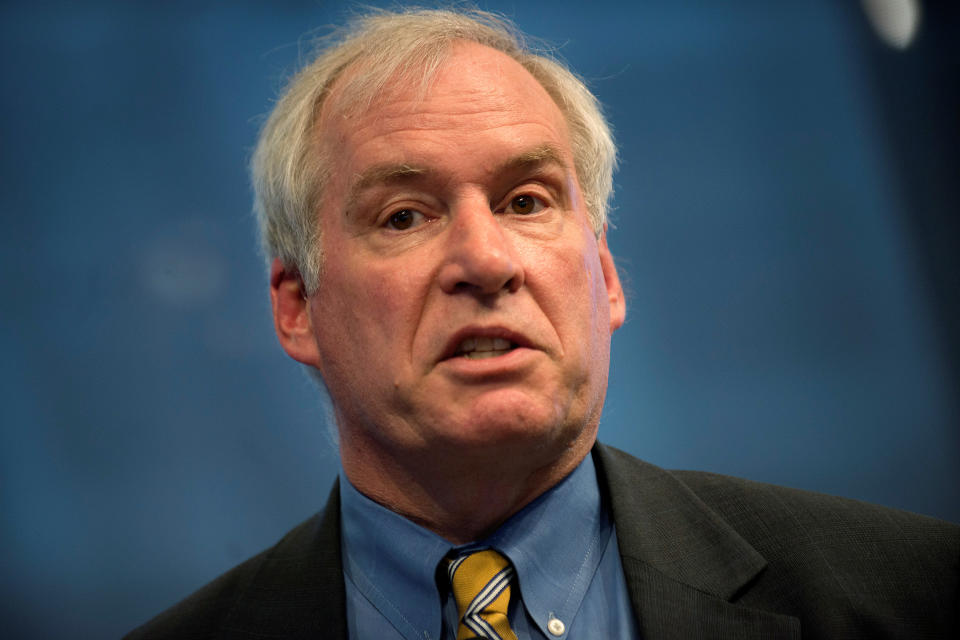St. Louis Fed's Bullard: 'Prudent risk management' would have been a 50 basis point cut

St. Louis Fed President James Bullard said Friday morning that the Federal Reserve should have cut interest rates by 50 basis points on Wednesday, worrying about “elevated” trade policy uncertainty and arguing that the first rate cut in July appeared to have little to no impact.
“It is prudent risk management, in my view, to cut the policy rate aggressively now and then later increase it should the downside risks not materialize,” Bullard wrote in a blog post Friday morning.
Bullard was one of three dissenters who opposed Wednesday’s decision to cut interest rates by 25 basis points. The other two dissenters, Boston’s Eric Rosengren and Kansas City’s Esther George, preferred no rate change at all, underscoring the widening gap in Fed views on where to take monetary policy.

The Federal Reserve has now cut by 25 basis points in back-to-back meetings.
Two reasons for a cut — trade and inflation
Bullard cited two key reasons for supporting a 50 basis point cut instead: trade and inflation.
On trade, Bullard appeared to see the impacts of rising tariffs as a more substantial risk to the U.S. economy, saying that U.S. manufacturing “already appears in recession.” Bullard also pointed to bond market signals flashing concerns over a recession.
“[T]he yield curve is inverted, and our policy rate remains above government bond yields for nearly every country in the G-7,” Bullard wrote.
On inflation, Bullard cast doubt on the effectiveness of only a 25 basis point cut in July. He expressed worry that inflation readings continue to run below the Fed’s 2% target despite the July cut and the high expectations for the 25 basis point cut this week. The Bureau of Economic Analysis’s most recent reading on core personal consumption expenditures (the Fed’s preferred measure, which strips out food and energy) showed inflation of 1.6% in the month of July.
Bullard said a 50 basis point cut would spur a “more rapid return” of inflation and provide insurance for an “economy subject to elevated downside risks.” His dissent was not a surprise; Bullard had publicly called for a 50 basis point cut prior to the meeting.
‘A time of difficult judgments’
Facing a record number of dissents in the Wednesday meeting, Fed Chairman Jerome Powell acknowledged the diverging views and the challenges of corralling differing recommendations on policy.
“This is a time of difficult judgments and, as you can see, disparate perspectives,” Powell said Wednesday. “I really do think that’s nothing but healthy.”
Bullard said he still has confidence that the Federal Open Market Committee will “respond accordingly” to economic developments. Rosengren and George have yet to comment on their decisions to dissent, but Rosengren could elaborate on his decision in a public appearance in New York scheduled for Friday morning.
Brian Cheung is a reporter covering the banking industry and the intersection of finance and policy for Yahoo Finance. You can follow him on Twitter @bcheungz.
Powell faces record dissent as Fed splits further on interest rates
Trade tensions, oil shock cloud Fed efforts to steer clear of recession
‘The weirdest place in the world’: What the Fed missed in Jackson Hole
The Fed is thinking globally despite Trump's push for an 'America First' monetary policy
Read the latest financial and business news from Yahoo Finance

 Yahoo Finance
Yahoo Finance 

